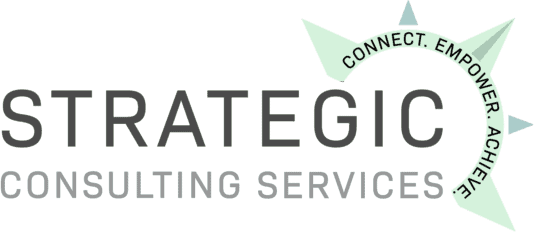As the workforce ages, accommodating older employees’ needs has become increasingly important. With the aging population and delayed retirement, employers need to recognize the value of having an age-diverse workforce. Employing and accommodating aging employees can bring a wealth of knowledge, skills, and experience to the workplace. Today, we will explore the importance of accommodating aging employees and the benefits of having an age-diverse workforce.
Understanding Aging in the Workplace
When employees age, they may face a variety of challenges in the workplace. Common challenges can include decreased physical ability, declining cognitive function, and increased risk of chronic health conditions. Age discrimination in the workplace is also a concern, and the legal framework requires employers to provide accommodation and comply with anti-discrimination laws. Employers need to create a supportive workplace culture that values and respects aging employees and fosters an environment that promotes inclusion and diversity. Providing accommodations for aging employees can help retain valuable talent and promote overall employee well-being.
Strategies for Accommodating Aging Employees
It is becoming increasingly important for employers to implement strategies to accommodate their aging employees. Here are some effective strategies:
Flexible Scheduling and Telecommuting
Offering flexible scheduling and telecommuting options can be a game-changer for aging employees who may need to adjust their work schedules to accommodate medical appointments, caregiving responsibilities, or simply the effects of aging. This can also help reduce stress and fatigue, which can be more prevalent in older workers.
Ergonomic Adjustments and Assistive Technologies
Providing ergonomic adjustments and assistive technologies can also be helpful for aging employees who may experience physical challenges such as joint pain or decreased mobility. Examples of accommodations could include ergonomic chairs, larger computer screens, and speech recognition software.
Health and Wellness Programs and Resources
Employers can also provide health and wellness programs and resources to help support the physical and mental health of aging employees. This could include on-site exercise classes, wellness coaching, or resources on managing chronic health conditions.
Training and Education on Age-Related Issues
Finally, training and education on age-related issues can help managers and colleagues better understand the unique challenges aging employees face. This could include ageism, age-related health concerns, and best practices for accommodating and supporting aging employees in the workplace.
Compliance with Legal Requirements
In addition to being the right thing to do, accommodating aging employees is often legally required. Employers must comply with federal, state, and local laws protecting against workplace age discrimination. The Age Discrimination in Employment Act (ADEA) prohibits employers from discriminating against individuals who are 40 years of age or older in hiring, promotion, compensation, and other employment decisions.
To comply with these laws, employers must engage in the interactive process with employees who require accommodations. This process involves a discussion between the employer and employee to identify the employee’s limitations and potential accommodations that could address those limitations. The employer and employee have a role in this process, which should be a collaborative effort.
Employers must also provide reasonable accommodations to employees who require them. Reasonable accommodations are modifications or adjustments to the work environment or job duties that enable the employee to perform the essential functions of their job. Examples of reasonable accommodations for aging employees may include flexible scheduling, job restructuring, or ergonomic adjustments.
Employers need to document the interactive process and any accommodations provided to employees. This documentation serves as proof of compliance with legal requirements and can protect the employer from potential legal issues.
Creating a Supportive and Inclusive Workplace for All
Employers who are able to successfully create a supportive and inclusive work environment can reap the benefits of an age-diverse workforce. This includes increased productivity, greater employee satisfaction, and a broader range of experiences and perspectives.
To accommodate aging employees, employers can implement flexible scheduling and telecommuting strategies, ergonomic adjustments and assistive technologies, and health and wellness programs and resources. It is also important to comply with legal requirements for accommodating aging employees, which include engaging in the interactive process and providing reasonable accommodations.
By creating a supportive workplace culture and complying with legal requirements, employers can ensure that aging employees are able to continue contributing to the workforce to the best of their abilities. Ultimately, this benefits not only the aging employees but the entire organization as well.
Strategic Consulting is Your Partner in Managing Workplace ADA Issues
Our team is here to help with your disability accommodation issues, vocational rehabilitation needs, ergonomic evaluations, and other employee needs.
For twenty years, we have been helping companies in the Pacific Northwest with worker injuries, disabilities, and other vocational challenges. We are here to support you in this unprecedented era of remote working and WFH.
We have partnered and provided solutions to some of the largest companies in the world (such as Boeing, Microsoft, and Amazon). But, at our core, we are still “people taking care of people,” one project at a time. Our success is built upon and providing you the best solution to your workplace challenge. Contact us today by filling out a form (below), submitting a referral, or visiting our ‘Contact Us‘ page to find your nearest office.
Ric has been working in the industry since 2002, specializing in developing employer jobsite analysis and light duty programs, ergonomics consultations and adjustments, disability accommodations and providing effective return to work solutions. Ric is Matheson trained in Ergonomics and is a Certified Ergonomics Evaluation Specialist. He earned a Bachelor of Arts Degree in Psychology from Western Washington University and later his Master’s Degree, M.Ed., Education Counseling from Seattle Pacific University. Ric is currently a Registered Vocational Rehabilitation Counselor for the Department of Labor and Industries and has been a Certified Disability Manager Specialist since 2006.

